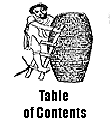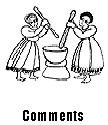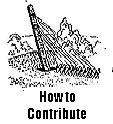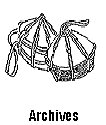

by: Zeg Fanta
Growing Up Normal Section I My uncle Wohabe Meaza and his friend, Berhane Meskel Redda, registered me at the askola School. I was 5 years old and still attending qEs tmhrt bEt evenings and weekends. I was excited to go to askola school at first, but later I almost changed my mind. I had a new shirt and pants. I carried a little blqaT that contained ink that I took to school on my first day. It was my Dad's ink. I preferred the ink to the pencil that worked with saliva. The First Day The need to form straight lines was what tired me out. Our class leader was obsessed with self. If he saw two kids standing, he would walk over to them and ask them to form a straight line! He would push and shove each kid yelling, "Be straight!" This happened every time and everywhere as we walked to classrooms, to the play field, and even during our break. Our class leader would ask us to form a line if we stood around in the classroom! Our class leader was koltafa, and a skinny boy but very rugged. He never communicated or listened to any one. "Mesmelun abelasheh! Tk'kl gba! Qum! Wedefeet new yalkuh1 Ante yemejemeliaw temali teTamehal!" Sometimes he would scratch the ground with his toes to draw a line. My first day was frightening. I did not know how to make a line. I got totally confused when our class leader started shouting at me. I did not know left from right. When the class leader started shouting at me, I covered my ears and, sometimes, my face. I just stood still. He got angry. He came over and pushed me from one side to the other. The ink I had carried in my hand all morning spilled all over my new shirt. I put my hands on my chin, devastated. My ears got hot. My friend later told me my face was also red. My neck was stretched out and my head was thrown forward. Time to attack! I walked closer to him and grabbed one of his fingers. He let it go, too. I put it in my mouth, and the next thing I remember was a qrrrrch'ch sound! The class leader screamed the loudest scream I ever heard! I covered my ears. I was frightened. The other kids surrounded him. He was on the ground already rolling and screaming. He had his two hands between his legs. The kids were pointing at me and saying "Nekesew! Nekesew! Belaw!" I sat down next to him and tried to calm him down, "Aizoh! Aizoh! Tenesa!" He lifted his head and looked at his hand. He saw blood. He screamed again, the loudest scream that blasted my ears. I covered my ears again. I was shaking. I felt my ears. They were hot alright! A woman teacher came and the students told her pointing at me, "Issu nekesew! Issu belaw!" She took him to the clinic. As she walked away she called me aner. I cried. Our teacher came and he was told what happened. He said: "Cheqla jb meTtual!" I knew I was going to be punished with a masmeria. The kids were excited. I was told to stand waiting in front of the class while the rest sat. I was shaking real badly. Some in the back stood on their chairs to see the grfya. The teacher asked the kids, "Snt yemasmeria qTat yiseTew lezih tnsh jb?" Some said meto, others shouted asr, hamsa, hulet. The teacher quickly came to his verdict and said: "Asr." I covered my eyes with one hand, and put the other on the table. I took five. The teacher said, "The other hand." I covered my eyes with my shaking hand and put the other on the table. Every one was counting. I took all of them. But, the last one made me cry. I cried for a good fifteen minutes. I saw the class leader enter the room. I stopped crying to look at him. He had a shash wrapped around his fingers that made his hand bigger than a t'rngo. Berhane and Wohabe came to pick me up. They were told the story immediately. I showed them my hand. I was still red faced and red eyed. And my shirt! They were angry with the teacher. I thought our class leader was going to beat me to death. Not at all! The next day, he came to me and gave me qolo and dabo kesukar gar. My mother had also told me to bring him home. I took him to our home, which was separated from the school compound by a fence. I fed him injera besga weT, dabo, qolo and many glasses of qrari to drink. My mother told me not to give him any more food because he would get sick. He ate and mulu mesob injera by himself. We became friends. From there on, I was not required to make straight lines. It was obvious. The other kids used to say: "Isus?" Wohabe and Berhane made me a special kid in the school, well treated by my teachers and students. Berhane had that powerful personality felt by teachers, students and administrators alike. He carried that dynamic personality till his death, I am sure. (Author's note: my uncle Wohabe distinguished himself as a pilot in the Ethiopian Air Force. He has passed away. Berhane Meskel Redda became a political leader and changed our world. He too has gone. The last I heard about my friend, our class leader, had become a decorated soldier. I live in Seattle.) Section II Ninth grade was difficult because the students were from mixed backgrounds, having come from schools all over the country. Many boys had come from the countryside. They were a bit older and very strong. They grew up eating yegebs injera. There were many awkward students and lots of mischievous ones. Kassa: Kassa had no father. His mother was a hard-working woman who sold Tela, dabo and injera. Kassa had to help his mother as soon as he got off school till it got dark. They did not have electric mebrat at home. He used to sit outside the house to study during the full moon. Sometimes, he used to go to his friend's house to study. He could not memorize at all. He had a hard time at exams. Homework assignments? No sweat. Several different classes met together for gbregeb, gymnastics and sports classes. The most exciting was the sports class. We played soccer, volleyball, track and field. The competition amongst the different classes were like wars and exciting. The next class suffered greatly for we were always late. The next class was always gbregeb, which was kind of boring for the boys. Aba Hanna, later named Tinzeeza by the students, was always complaining. He taught for 30 minutes instead of 60 minutes! One time, there was no sport, so we went to our gbregeb class early. Aba Hana came 20 minutes late himself. One mischievous boy suggested that we trick Aba by hiding under the huge desks. We did. The kids in the front row had to go to the back rows so that Aba could not see their feet. Aba came in, put his papers on the table and walked out cursing us, "Yich yegered lj hulu!" He waited for us outside some more and then came in. He picked up his books and walked out. One student took a peek and saw him advancing on Ato Yifru Gebeyehu's (the director's) office. Both came back. By then, we were in our seats. Aba was visibly shocked when he saw us all in the room. Aba claimed that we came in through the windows. Ato Yifru did not buy it. So, he checked if there were ladders since we were on the second floor. He did not see any. He asked us where we were. Some one replied: "Izihu." Aba said: "ACHberbari moshlaqa leba! Enen washo l'tadergi new?" Ato Yifru was puzzled and Aba himself looked confused. He said: "KalasdegemshbN besteqer, and'shm ene ezih qumE algebashm." Ato Yifru laughed and we roared with laughter, too. Some one said, "Aba dgmtu'n yftut." These were tough boys! Good thing that Aba smiled and almost laughed instead of screaming. Wallelign Mekonnen blundered, though. The first smart comment I ever heard from him. He tried to divert attention and confuse Aba some more. He said: "Erswo kewChi qumew bejerbawo sholkew yhonal yegebut." He blew it for himself. That was not a smart thing to say. Aba made that clear by saying: "Isu erasu moshlaqa aCHberbari new. Y'gereflN! Kebt aderegeN zurE yemalay?!" Ato Yifru told Wallelign that he had implicated himself and would be punished. We shouted: "Yeh! Tetat Wallelign, Tetat Wallelign endeTela!" We sacrificed him hoping that would end the issue. He looked at us angrily as he walked past the desks. He used to sit in the back row where the older guys often sat. I told Wallelign that I could hold his kuta. He looked at me and showed me his balager buTi (fist). I said to him: "InE mn aderegkuh!?" smiling. He replied: "Yet abak, qoy ageNhalehu ante qzenam!" "Qzenam" was his favorite sdb. Ato Yifru asked Aba how many alenga he should give Wallelign. Aba said, "Asr." That was unfair, I myself thought. He deserved 20 at least. I knew that means Aba was thinking to distribute the jraf qTat to all of us. I said "IndE!" Wallelign looked at me. The class shouted "Asr." Wallelign looked at us disgusted. We started counting when the grfya started. I started counting 10 to 1. Others 1 to 10. I yelled: "stop it, it is 0." There was confusion. Some said it was over ten, others said it was ten and some said it was 9. Aba accused me of deliberately confusing the count. Aba said pointing at me, "Ychi qebaTari achberbari tgereflN." The director agreed, and the class said: "Awo! We agree." I became the second sacrificial lamb. I took the last grfya, one painful alenga!. Ato Yifru told us that each of us would be spanked in front of the student body in the morning before or after the prayer. Every body said: "Ayieeee! Yale haTiyatachn?" Now Aba, looking happy, continued the lecture about honesty and truth. He then changed the subject and was telling us about God (Amanuel) and Christ. He occasionally asked questions. He asked Kassa, "Who is the mother of the Lord?" Kassa was caught off guard; he was engaged in shukshukta with a boy next to him. Kassa stood up. Aba walked to the window and started looking at the trees or the Azwa Gedel waiting for Kassa's answer -- "meqelabed" as Aba often told him. He had once covered his ears not to listen to Kassa's dramatic answer. He once asked Kassa if he even knew the name of our school. Kassa replied: "Yes, Kassa." The class laughed for several minutes. Apparently Kassa did not hear the question clearly. He told us later that he thought that he was asked his name. Aba replied to him: "Ezihu kassa bEt tarejialesh." Kassa got help and this time, he asked the kid sitting in front of him. The communication was by touching or gushimia. The kid was punched from behind and got the message. The kid, afun aTamo, as if he was beaming his dim voice directly to Kassa's ear: "W/o Mintwab." I warned him by saying: "gud fela!" Kassa quickly said, "Woizero Mintwab." Aba screamed: "W/o Mintwab?" Melaku Nerayo quietly told him that she was the virgin. This was the best hint that could save his life. Kassa did not get it, instead said: "Woizerit Mintwab." Rezene, another mischief maker whispered : "Try Woizero Siheen." Kassa said: "Woizero Siheen." The class laughed. As the saying goes, "if you can't beat them, join them," so Aba joined us laughing. We also knew that "Qolo sisq eyarere new!" Aba became infuriated. He picked up his things and ran out to report us to Ato Yifru. As he walked out of the class, we shouted: "Tizzzzzzz." We knew, anyway, that the grfya was to double. Luckily, Aba changed his mind and came back. He did not want to push his luck further. He knew that he had not convinced the director the first time even by 10 percent when he claimed that we entered through the windows. His credibility was questionable. So, no wonder that he changed his mind about taking another complaint to the director. He was standing outside. I asked him if he reported us. He said that he would be happy enough to see each of us crying and humiliated in front of the entire student body. The following day, we were punished. The reaction was mixed. Some students shouted: "Ygerefu". Others shouted: "Maruwachew." Gerafiw Ato Husien gubo beyiw zebegna neber. I told him to take it easy on me if he wanted Tela. He said: "ere yetabash!" He hit me hard except the last one that he deliberately missed to get his Tela. (Author's note: Kassa went on to become a well known teacher. He is no longer with us. Ato Yifru Gebeyehu became director of the Baher Dar Polytechnic, and later an Educational Attache at Ethiopian Embassies in D. C. and later in Moscow. He is no longer with us. Melaku and Rezene became mechanics at the Ethiopian Airlines. Melaku is no longer with us. Wallelign Mekonnen went on to become a student leader and a national hero. He is no longer with us. Many became distinguished professionals and educators. Several joined the army and became medical doctors and high military officers. They now live scattered all over the world. I reside in Seattle.)
11th Grade: A Turning Point? It was the end of the school year. We had graduation ceremony all afternoon. In the evening, a Drama Show that became unforgettable to many was shown. It was attended by numerous dignitaries. Crown Prince Asfawossen was there. Dr. Aklilu Habte, the president of Haile Selassie I University, was there. The presence of the Crown Prince was exceptional, but Dr. Aklilu's was the talk of the town. In his speech, the president Dr. Aklilu said: "It would be more appropriate if we made this school our university campus and the other (HSIU) something else." I think he knew that he was in the land of Berhane Meskel Redda. We clapped endlessly. The man who later became the Patriarch, Abune Gebriel, and many mesafint and mekwannint were there. I heard the former did not like Wallelign's speech because it was too radical and critical of tradition and religion. I carefully crafted my speech because my father, who was a friend to the Bishop, and most importantly the Crown Prince, were there. I would have lost my allowances. They could have changed my profession from a student to qEs which would have been a blessing. A few students presented their Diskur. Wallelign and myself were among them. We enchanted the people. It was about science, politics, democracy, religion and development. Ato (?) who became the famous linguist at HSIU, and other well-known students from H.S.I.U. on field services at our school and the Peace Corps teachers had prepared us for this showdown. We received prizes, mostly books and small things. Wallelign got a book entitled, get this, "What is Democracy?" I got a book entitled: "What is Communism?" Ethiopia was indeed the battlefield of the cold war! "What is Democracy?" described the worst aspects of western countries, mainly the United States. It contained hundreds of photographs showing poor blacks, ghettos, lynching, dirty streets, people going through garbage and everything that showed the worst images of the western world. In contrast, it showed a mighty Soviet Union, its modernization efforts, and its wonderful cities. The pictures of the communist countries looked like places from the heavens! "What is Communism?" was an ugly book to look at because it showed the Soviet Union and China inside out. The pictures depicted the worst and most undesirable places on the face of the Earth. The human condition and the poverty, the faces of millions of poor and miserable looking people were all over the pages. It showed the ravishing poverty of these countries. In contrast, it showed the wonderful images of the cities and places in the United States. The bridges, city skylines, highways, buildings and parking lots just as we see them today! I have wondered for years who chose these two books as gifts to students and who decided which student got what book. I suspected the involvement of much higher officials, such as the ministers. In regard to the idea of who gets which book, I believe it was the decision of the teachers and the director. I believe Wallelign Mekonnen started his future activities right there following that event. I believe he took it quite seriously and in some special way, the award, "What is Democracy?" became symbolic for him. He loved Atse Tewodros and, in a drama about Tewodros, he played the part. He had to lobby and campaign hard because there was another strong competitor who was also equally suitable for the act. Wallelign took the part. But, somehow, he also started acting like Tewodros in real life! At any rate, whether that was the cause or not, Wallelign had aspired to become a leader of a movement. I knew he died as a leader. |

|

|

|

|

|
| © Copyright SELEDA Ethiopia, January 2002. All Rights Reserved. |